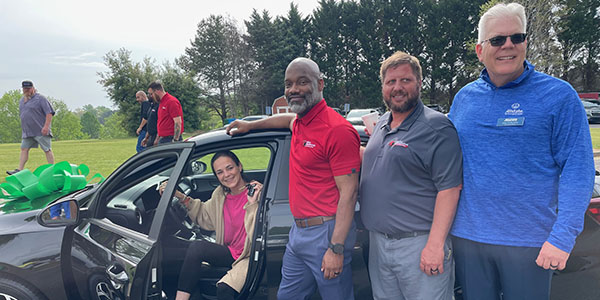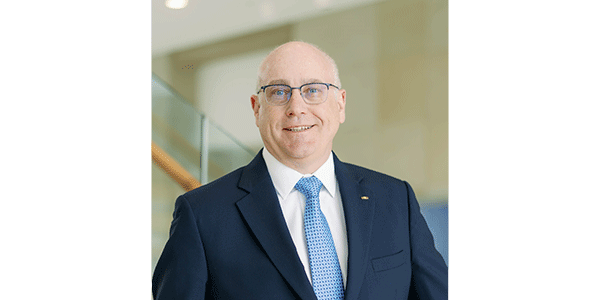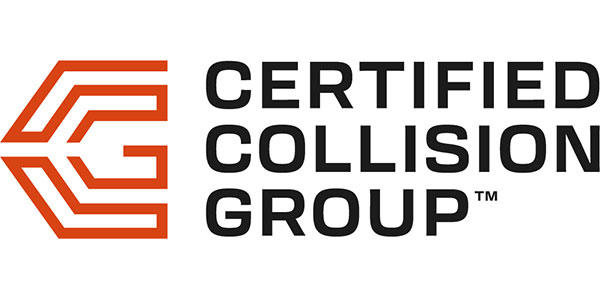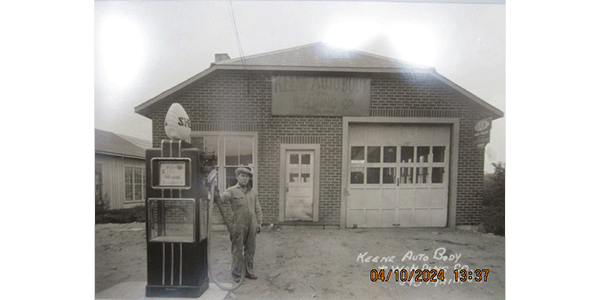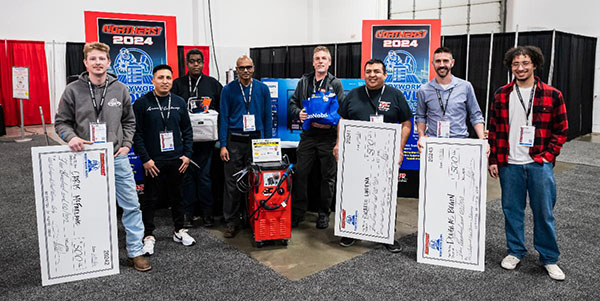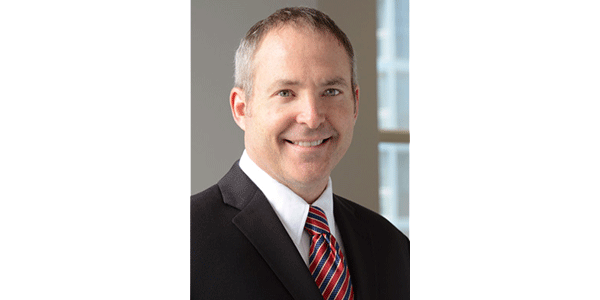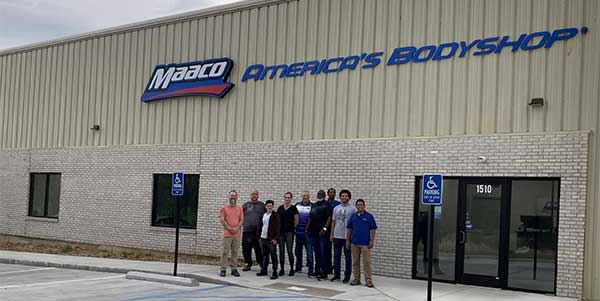Dear Georgina,
After reading your Editor’s Notes in the current issue (June 2001, “All in a State Over Allstate”), I felt compelled to share what we’ve done concerning Allstate. On Feb. 14, 2001, we had a meeting with our Allstate DRP representative. Her boss was also invited but didn’t come to the meeting.
Our agenda included 10 items that were concessions we were making to Allstate when compared to other DRP agreements. As the meeting started, she said she’d listen but nothing was going to change. We went through each of the points, and at the end, we asked for her final answer. She said no changes.
We then told her that we’d no longer be a DRP for Allstate and walked away from the 727 vehicles that we’d fixed the prior year with an average ticket of $1,501. What really took the cake was the fact that we rented space for Allstate to do drive-in claims and when their adjustor asked customers where they wanted to get their cars fixed, if they said Westside Auto Body (us), he’d then write the estimate with a labor rate $2 less than if they were going somewhere else.
We calculated our concessions at over 10 percent, plus the large amount of administrative time associated with the Allstate procedures. This was right after Allstate published their profits for 2000, which were 11.22 percent after taxes. Our earnings were 2.92 percent before taxes.
Since [walking away from Allstate], we’re doing a little less volume, but we reduced one estimator and have improved our bottom line a whole lot.
Dick DeLaere, controller
Westside Auto Body CARSTAR
Kalamazoo, Mich.
Ms. Kajganic:
In response to your recent editorial, you have accurately addressed the issue’s main points. As a former Allstate PRO manager and a current PRO repair facility manager, I definitely see the implications of the Allstate acquisition. Luckily, I’m in a market that, I believe and hope, Sterling is reluctant to enter.
For existing PRO shops in markets where Sterling has a presence, they’ll definitely see the affect of Allstate getting into the repair business. That change, however, may not be so bad if the shops prepare themselves. Most, if not all, of the insurance companies that have DRPs with Sterling shops will pull the plug. Sterling shops will focus on the Allstate customer and everyone else is at the back of the line. All insurance companies with DRPs want their customers given preferential treatment, and Sterling simply won’t be able to provide those assurances. Shops need to develop and improve their relationships with other carriers as soon as they can. Other DRPs pay better rates and require less administrative support than Allstate’s program so, in effect, other DRP programs are more profitable.
Because of Allstate’s PRO rates structures that lag behind the competition and the expected elevated levels of customer service (PRO 2000 concept: free pick up and delivery, increased administrative support and documentation, additional customer contacts, etc.), Sterling management teams will be challenged to maintain adequate levels of profitability. To fulfill Allstate’s desire to provide a differentiated claims experience, significant additional non-productive staffing is a necessity. The additional front-end costs are going to cut into an already-marginal profit potential – not to mention, Allstate’s current attempts to reduce severity by 4.5 percent in the PRO arena.
With an Allstate vice president sitting as chairman of the board at Sterling, there’s no doubt that Allstate will not only influence but direct the method of repair. The PRO management team in Northbrook has been looking at this project for a long time. They have some very lofty goals supported by some very optimistic views of the management of collision repair operations. Sterling shops will be treated differently. The regular PRO reinspection staffs won’t perform the oversight as in other PRO shops. One could deduce that Sterling shops will be held to a different standard.
It’s going to be very interesting to watch what happens.
Name withheld, body shop manager
Miami, Florida
Georgina:
Customer, partner or competitor? The shops that have lost sight as to whom their customers are should re-evaluate their stance. To me, the customers are the people and businesses in my community, not the insurance companies – for it’s the individuals who ultimately pay for your services.
Those who have chosen to partner with insurance companies have, in some respect, become an employee for them, since in these agreements insurers dictate how to repair, which parts to use and how much shops are to be compensated. For those body shops that have compromised their values and sold out their individual customer, the price they ultimately pay may be their reputation.
With the acquisition of Sterling, Allstate is directly your competitor. And with Allstate’s huge financial backing, the possibilities are endless. They can disregard profits to increase market share. With this combination, Allstate could also dictate labor rates, as Sterling sets the rates. They can then operate at a loss, squeezing out the (financially) weaker shops. In return, Sterling gains more and more market share. They’ll use these powers in target markets where Allstate has higher repair costs, increasing the parent company profits.
Let’s see this for what it is: Allstate says it’s just a business investment, but I see it as a way to control independent shops. To all those who’ve seen insurers as customers or partners, look past the smoke and mirrors to see the big picture.
Sincerely yours,
Gerry Galiger, president
Finesse Body Works, Inc.
Greenwood Lake, N.Y. A
Sue the Paint Companies? Be Careful What You Ask For
Lets all jump on the bandwagon and join in on the lawsuits against the paint manufacturers. Doing so could have a profound impact on the future of the collision industry. By turning the clock back a few short years we can visualize the magnitude of this endeavor.
Since 1979 the collision industry has transgressed through five major revolutions in the processes of how business in transacted. The first major change came with the advent of the unibody vehicle and the need to retrain our technicians and equip our shops with the tools necessary for their repair. This was followed closely by the “paint revolution” wherein we again found it necessary to retrain employees and invest in equipment required for the more modern processes. Instead of “factory packs” for the paint process, we started utilizing paint mixing machines, down draft spray booths, prep stations, VOC tracking systems, and other modernized processes to achieve the end results.
By 1985 the collision industry was in full swing with a management revolution coupled with an awareness focused on customer service and the image of the business. Computerization, fax machines, and modernized customer service centers became the forefront of concern. The late ’80’s and into the ’90’s found the industry in the world of deciding for and/or against the many insurance claims programs that bean to surface; “The DRP Revolution” was upon us.
Throughout these past 22 years one entity stood head and shoulders above the rest in supporting the collision industry: The Paint Companies; all of them. And now, we file our lawsuits.
Ask yourself:
In the past 22 years have you or anyone from your shop:
1) attended an I-CAR class?
2) attended a NACE Conference?
a. attended any of the seminars?
b. enjoyed any of the privately sponsored parties?
3) been a member of a trade association (nationally or locally)?
4) attended a Collision Industry Conference meeting?
5) attended an AMI Certified seminar?
6) benefited by the workings of the National Auto Body Council?
If the answer to any of the above questions was yes, then ask yourself who you think supported these efforts. The answer: The paint manufacturers. They have been the benefactors to the collision industry.
The paint companies have been called upon to open their pocketbooks and contribute to every aspect of the industry. They work toward the benefit of ASA and SCRS. They support every local and state association in every activity from golf outings to seminars. They contributed millions of dollars to the Automotive Management Institute (AMI) and the I-CAR Education Foundation. They are the largest exhibitors at NACE, funding the parties to which the industry flocked to participate. They host the Collision Industry Conference meetings, receptions and breaks. They contribute to the funding of the National Auto Body Council (NABC) as well as every state and national trade association. The industry would collapse from within if the shop owners were solely responsible for the contributions that allow these various entities and activities to continue.
In addition to the large amounts of dollars that the paint companies contribute, they also play a major role in the training of the industry. Beyond the technical training that they sponsor with regard to their own products, these companies have also developed training to enhance every aspect of their customers operations. When the grass roots of the collision industry needed help, they were there to provide assistance in a variety of ways. Your paint company has supplied more than a product; they have worked with our industry to help us to become more successful and to secure our future.
So, lets sue!!
And the ramifications of these lawsuits: Just picture the industry without the paint companies working along side of us in all of the endeavors that we pursue. And picture the industry without the aid of the millions of dollars the paint companies contribute to our associations and events. Just picture us standing in the hallways of NACE (and without the paint companies they could hold it in the high school gym) wondering who is throwing the party, only to discover that the party is now up to us and we forgot to plan it. (Perhaps the lawyers will throw the party with all the money they will steal from these lawsuits).
If you really think you have been hurt by the “alleged activities” which are yet to be proven, then go ahead, it is certainly your right. But, if you believe that they have been there when you needed them and that they have helped your industry, then think twice about who your friends are, because if you continue with these actions, you will have lost and alienated some of the best friends we have ever had. We need them to work with us toward the betterment of the future of this industry and I can assure you that the lawyers will not step in to fill their shoes.
Take the money you were going spend on legal fees and the time you were going to spend digging through records and researching all of your expenses and instead attend a management seminar or send your employees to additional training seminars. You will be far better for it, and the industry can continue to work with those companies that have been trying to assist us.
Respectively
Jeff Hendler
J.D. Hendler/Associates
Web Bonus Letter
Hand It Over
Re: Bill O’Keefe’s deductible question [April 2001, pg. 26]
What’s wrong with helping your customer with the payment of his repair by giving him a discount in the form of not paying all or part of his deductible? I realize [you] can’t help every person with every repair. It takes some knowledge of your business: knowing your costs, production schedule, marketing, etc., to make an informed decision about whether or not to help a person with his deductible. I, like everyone else, like to get full price for everything I do. Unfortunately, the public has become better negotiators, and there are times when, if we want the business, we must become negotiators, too.
Is the guy who wrote the article the same guy who’s giving his preferred accounts a discount on parts and a lower hourly rate on labor to capture the business? If he is, what’s the difference? It’s not necessary to “pad” an estimate or “cut corners” to do this. The last time you bought a new TV and it was on sale for 20 percent off, did they leave the picture tube out to make up for the discount? No, they sold the whole product, guarantee and all, but conceded some of their normal selling price to make the sale. Becoming better at our jobs by using the estimating information (estimating guides, computer databases, etc.) available to us and being better negotiators both with the customer and the insurance companies could help us greatly in these decisions.
Sincerely,
Rob Nortman, manager
M-78 Body Shop
East Lansing, Mich.
Web Bonus Letter
Are Shops Becoming Scapegoats?
[Re: March 2001 Editor’s Notes]
Hi Georgina!
I see your magazine is published in Ohio. I, too, am from Ohio. I was brought up in the trade in my Dad’s shop outside of Mantua. I have owned a shop in Southern California called Tom’s Custom Auto Body for more than 20 years. About five years ago, I had to make a decision: Jump in to the DRP game or try to do this on my own. I chose the latter. We’re a complete specialty shop, and today, I can see that money can be made outside the strong hold of the insurance companies. We still do insurance work, but it’s rare, and the labor rate I get from insurance companies is more than twice the going rate they want to pay.
… I believe there can be a rainbow in this business outside the strong arm of the insurance companies, but it takes a little faith – faith in the ability I’ve acquired over the years.
I don’t believe the insurance industry built this division between us and them. But because of the nature of the beast, it’s happened; they’re interested in making money and so am I.
These shop owners who cower to the insurance industry need to make a stand that their work is worth a decent wage – and that wage is more than we’re being paid by the insurance companies right now
There are too many shops that are willing to cut corners. An insurance company has never told me to cut corners, and if they did, why would I listen to a person who’s willing to do that?
I believe insurance companies have a right to protect their business, and if these body shops continue to do the kind of work being done today, they’ll be the ones held responsible. I believe body shop owners need to take a better look at the trade and do a complete cost breakdown on what it takes to do work properly. Then they need to come up with a price for a hourly rate.
It’s not the insurance companies’ fault for what’s happened to this business. It’s my fault for allowing others to dictate to me how much I’m worth.
Sincerely,
Tom Horvath, owner
Tom’s Custom Auto Body
Southern California

